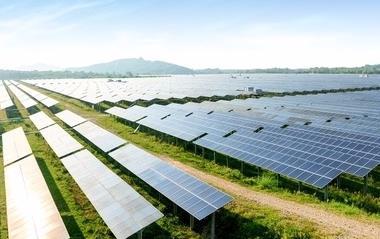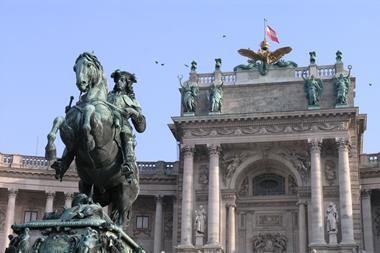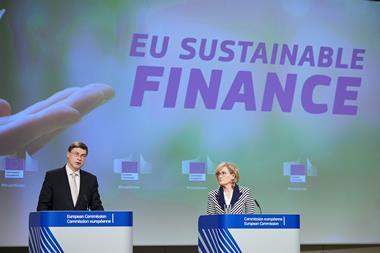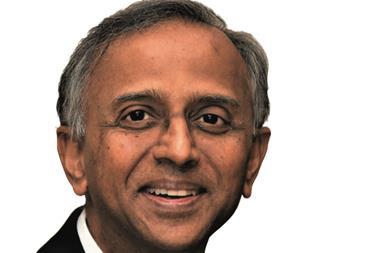German and Austrian asset managers have sent a letter to the European Commission asking it not to classify nuclear energy as a sustainable economic activity under the taxonomy framework.
The letter was sent under the umbrella of Forum Nachhaltige Geldanlagen (FNG), which promotes sustainable investment in Austria, Germany and Switzlerland. According to its backers, listing nuclear energy as a sustainable economic activity in the EU taxonomy “poses a risk to the credibility of the EU’s efforts on sustainable finance”.
With the letter, the FNG has stepped up efforts to induce the Commission to take a clear step against nuclear energy in the taxonomy. In March it issued a press release in which it argued against nuclear power’s inclusion.
About its letter to the Commission, FNG said some of its members wanted to demonstrate their support by being named.
These include Union Investment, Deka Investments, LBBW Asset Management, and Raiffeisen Capital Management. Hannoversche Kassen, a German occupational pensions provider for the non-profit sector, has also backed the letter.
In it, they urged the Commission to follow the recommendations of the technical expert group on sustainable finance (TEG), which advised the Commission for its first sustainable finance strategy.
In the technical annex to its final report published last year, the TEG said nuclear energy generation produced near to zero greenhouse gas emissions in the energy generation phase and could contribute to climate mitigation objectives.
However, the TEG refrained from recommending inclusion of nuclear energy as an eligible activity under the taxonomy framework because it may cause significant harm to other environmental objectives. It recommended more technical work be done.
According to the FNG’s letter, the “unresolved issue of nuclear waste storage has always placed nuclear energy at odds with sustainability”. The letter also stated that nuclear energy is a key exclusion criterion in sustainable finance products, as well as for standards for sustainability certifications and labels.
The German FNG Label, the Austrian Ecolabel, the Nordic Swan and the French Greenfin Label explicitly exclude nuclear energy, it added.
In a letter to the Commission earlier this year, ministers of Germany, Austria, Denmark, Luxembourg and Spain sought to keep nuclear energy out of the taxonomy.
Expressing concerns with regard to the conclusion about the energy source drawn by the Commission’s Joint Research Centre, they urged the Commission “not to jeopardise the courageous path it has taken towards making the EU the global lead market for sustainable finance”.
In April the Commission adopted its first taxonomy delegated act, which did not include activities such as nuclear energy and natural gas.
Releasing its new sustainable finance strategy in July, it said it would adopt a further delegated act covering sustainable activities not included in the first one, and that this would cover nuclear energy activities “subject to and consistent with the specific expert review process that the Commission set out for this purpose”.
Earlier this month the United Nations Economic Commission for Europe published a briefing in which it said nuclear power can help reach the targets of the Paris Agreement and the goals of the 2030 Agenda for Sustainable Development.
Over the past 50 years, the use of nuclear power has reduced global CO2 emissions by about 74Gt, or nearly two years’ worth of total global energy-related emissions, with only hydropower having played a greater role in reducing historic emissions, according to the briefing.
Germany has announced a phasing out nuclear power while countries like France and the UK have stated that nuclear power will play an important role in reducing their national emissions.











